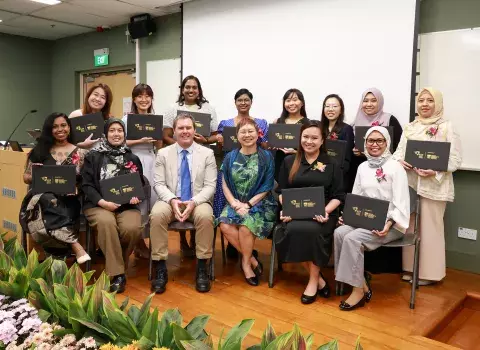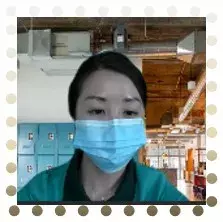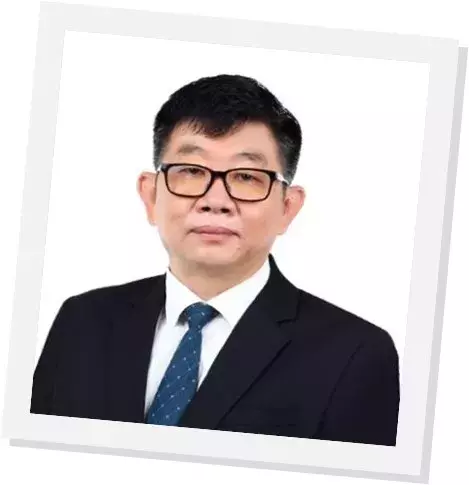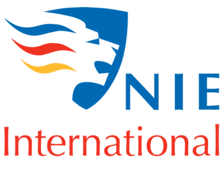
Postgraduate Diploma in Higher Education (PGDHE)
The Postgraduate Diploma in Higher Education enhances academic practice by equipping professionals with pedagogical skills, practical teaching experience, and an understanding of student learning in diverse environments.
Overview
The Postgraduate Diploma in Higher Education will provide the knowledge and pedagogical skills for the professionals in higher education to reflect upon key underlying educational philosophies, pedagogy and their experience to enhance their academic practice. Participants will be given opportunities to develop their practical teaching skills, acquire an understanding of the issues and factors which affect student learning in higher education and, under minimal or no guidance, to organise and carry out a range of functions involving learning and assessment in a variety of teaching environments.
Hear what our participant says

Through the programme, lecturers like Mr Mazlan and Dr George Jacobs have equipped me with strategies and techniques that I was not aware of despite teaching secondary school students for more than a decade!
Muhammad Fadhil Bin Abdul Latif,
PGDHE17

Sharing and learning from nurses from different organization and discipline is a very rewarding experience.
Chen Ying,
PGDHE17

One of my takeaways from the course related to designing for online and blended learning is that I proudly employed the google site to build an online collaborative learning environment.
Eliana Binte Naser,
PGDHE16

PGDHE has enhanced me to a better educator & allow me to explore the insights of education. Education is lifelong!
Kalaivani Devarajan,
PGDHE16

This programme has helped equipped me with the extensive pedagogical knowledge and skills I need in my job to fulfill my role as an educator well. This also helped me perform better in my teaching and assessment for the nurses and students in the clinical ground better. I really enjoyed every module that was crafted for our learning and the friendship bonds we made with my other course mates. Thank You! :)
Choo Li Ping,
PGDHE15

This is a great course with a lot of opportunities to ask questions on teaching and learning and it is applicable in real situation
Thane Wan,
PGDHE15
Programme structure
Participants are required to take a total of eight modules (a total of 228 hours), consisting of six core modules (each 30 hours) and two elective modules (each 24 hours).
Core Course
This module aims to familiarise students with current research issues in the field of educational psychology. The understanding of social behaviour would be useful to teachers in their interactions with students, colleagues and parents. This subject examines how people perceive themselves and others, how they influence one another and how they behave towards others. Participants will actively examine and engage in discussions of how various social psychological theories and research can be applied to Education. Selected topics include the following: individual differences in cognitive processes, gender differences in learning, pupil variation and teaching, motivation, classroom management, identification and assessment of individual differences, implications for instruction will also be discussed. In this module, the lecturer will also take the opportunity to update participants with the recent global trends and issues in Higher Education.
In this module, participants will learn about the theoretical and practical aspects of small group teaching methodology. Small group teaching is not lecturing to a small group. It is facilitating the
participation of the group in an inquiry or problem-solving activity. In small group teaching, the instructor becomes a facilitator promoting collaborative learning. The facilitator concentrates on
creating an environment in which all participants collaborate and become mutually supportive to enhance each individual's learning. Small group teaching is optimal for active learning, which is becoming regarded as an essential element at all levels of education and which typically is not present in the traditional passive lecture. This is one technique for generating open communication among all the participants of the group and also between the group and the facilitator.
The search for educational methodologies that emphasize real world challenges, problem-solving, inventive thinking, higher order inquiry skills, multi-disciplinary learning, independent learning, e-learning, information and knowledge management and collaborative skills appear to have a confluence in problem-based learning (PBL).
In PBL, problems scenarios - past, present, future and the unexpected, are used powerfully to stimulate learning and enhance the quality of thinking. How do we design scenarios and problems (from industry, business and social environments) to motivate insightful and innovate thinking? Furthermore, in the internet era, learner's availability of, and accessibility to, information has re-defined the roles of trainers and ushered in new possibilities with PBL. As coaches, facilitators and designers of learning, the challenge is to also empower learners to learn how to learn and to make better use of the accessibility and wealth of knowledge. Selected topics include the following:
- Introduction to educational innovation
- Introduction to PBL
- Experiencing and learning PBL
- Problem design and implementation
- PBL coaching and facilitation
- PBL curriculum and assessment
This module will cover the concepts 'Conventional Assessment' and 'Alternative Assessment' for use in Higher Education. Different ways of assessing students' work and grading will be discussed together with consideration for the broader issues of validity, reliability and objectivity.
Problems, issues and research related to assessment will be discussed. The following are the key issues:
Assessment for learning. The Polygamous Rule in Assessment: Why, What, How and When? Necessary basics: Goals and objectives. Concepts of testing, measurement, evaluation and assessment. Theoretical underpinnings. Problems/Issues and research.
Purposes, priorities, processes in assessment in education. Present approaches and future challenges. Forms of assessment: different methods and innovative procedures for higher-order thinking skills and critical and creative thinking skills. Problems/Issues and research.
Development of quality assessment instruments: techniques and procedures, including MCQ design and testing. Evaluation criteria for quality measures: validity, reliability and objectivity: Related/Issues and research.
Management and interpretation of assessment data. Basic and related statistics: In search of a fair system of awards. Problems/Issues and related research.
This module examines the principles and approaches of curriculum design. At the end of the module, each participant will have acquired skills in systematically developing a curriculum for the module/course that the individual wants to teach. Participants will:
- Develop a profile of the learners
- List down module aims
- Write out module objectives/outcomes (what learners will learn at the end of the module)
- Design a conceptual framework based on learning styles for the content and different teaching approaches
- Construct assessment modes and grading
- Develop instructional plans using different motivating teaching strategies
- Write out detailed instructional guides for each topic and time frame
This module centres on the understanding and application of basic principles and approaches in critical thinking skills, problem solving and reflective teaching.
The main issues include the following:
- Fostering critical thinking and reflective thinking in learners
- Promoting creative problem solving as a desired outcome of education
- Creating a conducive environment for teaching thinking and problem solving
- Approaches to teaching thinking
- Thinking skills, thinking strategies and habits of mind
- Reflective teaching and the use of questioning to foster thinking and problem-solving skills
Elective Module (choose 2)
The module will consist of mini-workshops offering demonstrations of communication strategies and experiential learning activities. In this module, the instructor will also take the opportunity to demonstrate some practical principles in lesson presentations, such as use of powerpoint presentation.
The following are broad topics that form the framework to this module on Communication for Teaching and Learning:
- Communicating to encourage thinking and exploration
- Communicating to inspire and modify attitudes
- Communicating to build interaction and collaboration
- Listening and responding; explaining and questioning; instructing and persuading
- Using information communication technology
- Removing communication roadblocks
- Use of voice, diction and public speaking skills
This module introduces participants to a relatively new learning framework in vocational training. 'Flexible Learning' expands choice on what, when, where and how people learn. It supports different styles of learning, including e-learning. The world we live in today demands a flexible approach. A number of recent studies illustrate the growing trend to blended learning, that is, incorporating the use of information and communication technologies (ICT) into the delivery of education to augment rather than replace face to face teaching. E-learning is now an integral part of organisational training in developed countries. The module centres largely on the planning and designing of e-learning, online learning and blended learning.
Note: This elective is recommended for nurses.
This module aims to develop participants' competence in clinical skills. It provides them an opportunity to practice their clinical skills and gain assurance and confidence in the quality of their capabilities. Stritter and Flair (1980) define clinical instruction as "the teaching/learning interaction between clinical teacher and student which normally occurs in the intellectual vicinity of a patient and focuses on either the patient or some clinical phenomenon which concerns a patient or a class of patients". While much of this learning will be the result of independent activity of the student - reading texts and articles, observing skilled practitioners conduct a procedure, seeking out advice from faculty, the module emphasizes the unique characteristics of teaching in the clinical setting, such as, what is taught is dependent on the patient's problems available at that time. Participants will be provided with many opportunities to investigate, interact with the patient, perform monitored skill practice, and receive timely, targeted feedback.
More information
NIE's delivery mode at post-experience level is highly interactive and participative. We consider participants as partners and fellow collaborators in the learning process. We use diverse delivery modes, such as action learning, dialogue, simulations, case studies and scenarios. These delivery modes are meant to stimulate and build the cognitive, affective, reflective and analytical capacities among participants.
Essentially, the assessment of participants will be part of the pedagogy of the programme. They will thus be formatively assessed throughout, but will also undergo a final summative assessment, in the form of an assignment. All assignments will be graded.
Participants who complete the course satisfactorily (i.e. In-class participation and assignments) will receive certification awarded by Nanyang Technological University (NIE’s parent university).
Apply Now
Entry requirement
A good Bachelor's degree from a recognised university
Steps to apply:
The registration for 2026 intake [July 2026 - July 2027] has closed.
Please register for interest and the office will contact you. Thank you.
| Ms Yvonne Goh Tel: 6592 8259 Email: yvonne.goh@nie.edu.sg | Ms Sheiam Ching Ling Tel: 6790 3025 Email: chingling.sheiam@nie.edu.sg |
